Artur Ortega
Rethinking Intelligence: AI, Accessibility, and the Future of Inclusive Work - Artur Ortega
#1about 4 minutes
Putting people at the center of AI systems
AI systems should be built with human-centric values to avoid bias and serve the real needs of all users, especially disabled people.
#2about 2 minutes
Introducing vibe coding for natural language programming
Vibe coding allows developers to use natural language to express intent and emotion, removing the cognitive load of syntax and making coding more accessible.
#3about 4 minutes
How accessibility needs have historically driven innovation
Many mainstream technologies like transistors and gesture controls originated as solutions for disabled people, proving accessibility is a catalyst for good technology.
#4about 4 minutes
Using AI for human impact, not just productivity
The true value of AI is not just replacing jobs or increasing output, but solving real human problems and creating a positive impact on people's lives.
#5about 4 minutes
Leveraging AI to experiment and improve code quality
AI enables developers to quickly generate multiple versions of a feature, facilitating A/B testing and shifting the focus from production to curation and creating more intuitive solutions.
#6about 4 minutes
The shift from graphical UIs to agentic AI
Agentic AI and protocols like MCP are replacing traditional click-based interfaces, allowing users to automate tasks and interact with systems using natural language.
#7about 5 minutes
Creating accessible architecture diagrams with AI and Mermaid
AI can translate visual architecture diagrams from tools like Lucidchart into textual formats like Mermaid, making them accessible, version-controllable, and easier to maintain.
#8about 6 minutes
AI as a control plane for delegating complex work
AI is evolving into a control plane that understands natural language, allowing professionals to delegate tasks like coding and analysis while they focus on supervision and strategy.
#9about 6 minutes
Adopting the social model of disability in tech
Technology should be used to fix inaccessible systems and processes rather than attempting to "fix" disabled people, aligning with the social model of disability.
#10about 3 minutes
How diversity and inclusion create resilient systems
Diversity, equality, and inclusion are not regulatory burdens but essential components for building less fragile, more resilient teams and systems through varied perspectives and psychological safety.
#11about 9 minutes
Why disabled people are innovation's hardcore users
Disabled people are not edge cases but are often early adopters and power users whose needs drive innovation, making their inclusion essential for shaping a useful AI future.
Related jobs
Jobs that call for the skills explored in this talk.
Wilken GmbH
Ulm, Germany
Senior
Amazon Web Services (AWS)
Kubernetes
+1
ROSEN Technology and Research Center GmbH
Osnabrück, Germany
Senior
TypeScript
React
+3
Matching moments
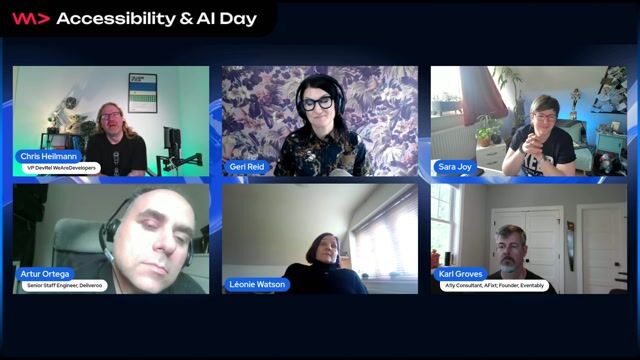
09:47 MIN
A future outlook on AI's evolving role in accessibility
AI and Accessibility: The Good and the Bad - Fireside Chat
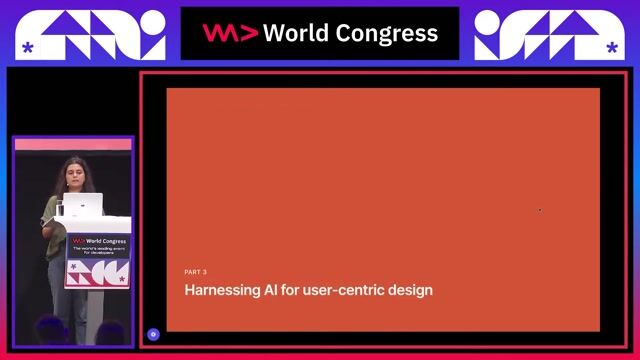
01:12 MIN
Using AI to enhance inclusivity and accessibility
Insight into AI-Driven Design
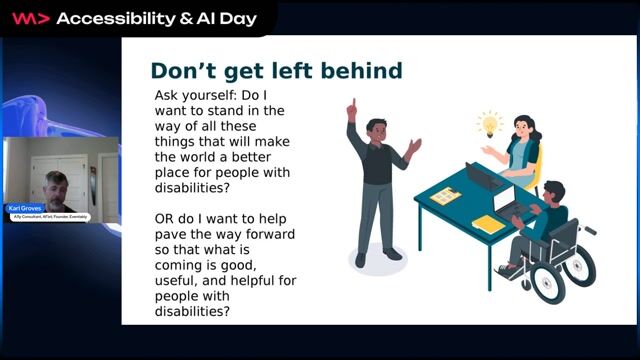
03:06 MIN
Adapting your accessibility career for the age of AI
AI is the Future of Accessibility - Karl Groves
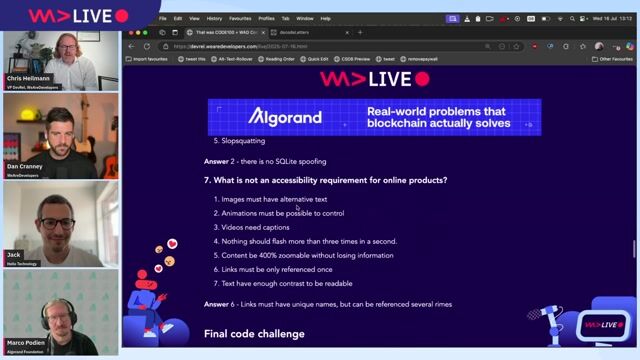
04:12 MIN
Connecting web accessibility requirements to ethical AI development
WeAreDevelopers LIVE - Our World Congress 2025 & CODE100 Highlights with Jack Barber and Marco Podien
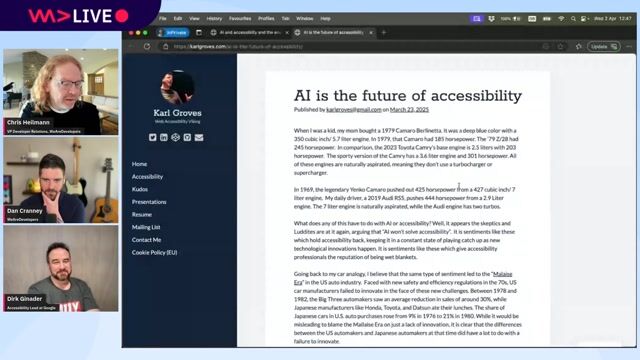
19:01 MIN
Exploring AI's potential and pitfalls in accessibility
WeAreDevelopers LIVE - Can AI save Accessibility?; Horrid HTML; The Frontend Treadmill and more
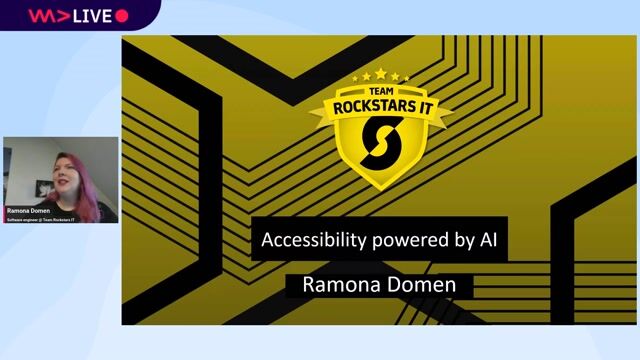
01:45 MIN
Debating if AI can replace human accessibility experts
Accessibility powered by AI

04:11 MIN
Q&A on AI's impact on careers and inclusivity
Inside the AI Revolution: How Microsoft is Empowering the World to Achieve More
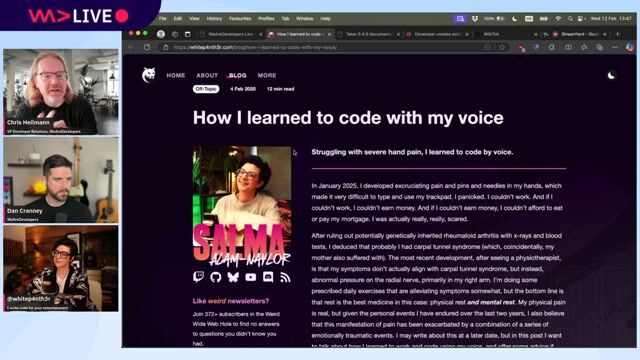
01:57 MIN
Using AI for meaningful human assistance
Honeypots and Tarpits, Benefits of Building your own Tools and more with Salma Alam-Naylor
Featured Partners
Related Videos
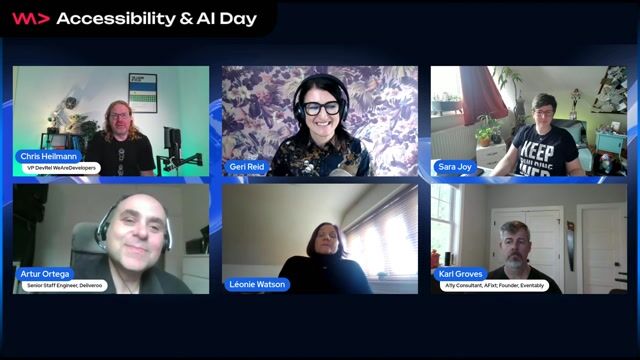 51:09
51:09AI and Accessibility: The Good and the Bad - Fireside Chat
Léonie Watson, Artur Ortega, Karl Groves & Geri Reid & Sara Joy
 29:28
29:28AI is the Future of Accessibility - Karl Groves
Karl Gvoves
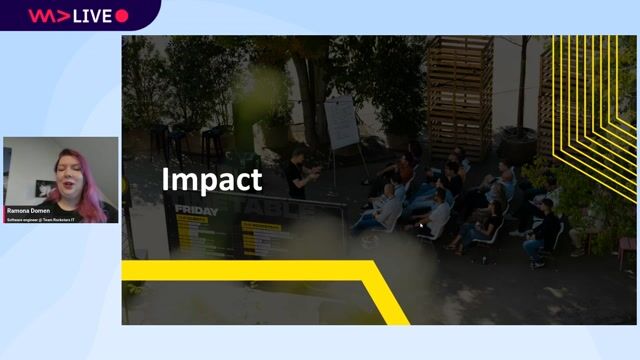 31:30
31:30Accessibility powered by AI
Ramona Domen
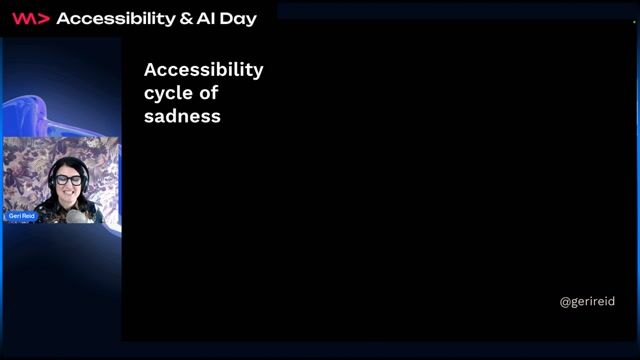 37:41
37:41Shift Left On Accessibility - Geri Reid
Geri Reid
 45:09
45:09Engineering Mindset in the Age of AI - Gunnar Grosch, AWS
Gunnar Grosch
 28:09
28:09The AI-Ready Stack: Rethinking the Engineering Org of the Future
Jan Oberhauser, Mirko Novakovic, Alex Laubscher & Keno Dreßel
 59:16
59:16Developer Productivity Using AI Tools and Services - Ryan J Salva
Ryan J Salva
 28:09
28:09Leading efficiency, empathy, and the human experience with AI
Ming Wu, Alexander Birke, Benjamin Perlzweig & Emmanuel Viale
Related Articles
View all articles



From learning to earning
Jobs that call for the skills explored in this talk.


AgileEngine
Barcelona, Spain
Intermediate
Go
API
Python
Amazon Web Services (AWS)

Jordan Martorell S.L.
Barcelona, Spain
Remote

Antai Ventures
Barcelona, Spain
Senior
DevOps
Continuous Delivery




